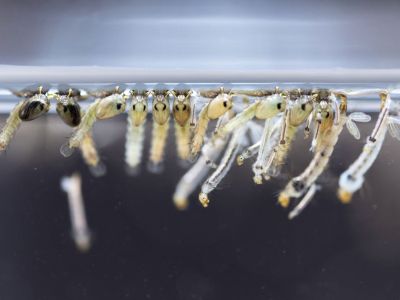What is Larvicide?
A larvicide is a product that kills insects at the larval stage, when they are active but still immature. You’ll find these products in multiple forms in garden stores and nurseries: briquettes, tablets, granules, pellets, and liquids. You can use a larvicide to manage mosquitoes which lay eggs in standing water. The larvicide goes directly into water. Mosquito eggs are typically found in buckets of water, gutters, fountains, ponds, puddles that don’t drain quickly, septic tanks, and even on the tops of pool covers that collect water. You don’t have to worry about mosquito eggs in chlorinated water.
How Do Larvicides Work?
Different larvicide treatments work in different ways. Those that contain the spores of the bacterium called Bacillus thuringiensis israelensis, or Bti, kill the larvae of flies and mosquitoes only. They do so by acting as a poison in the larvae when ingested. The benefit of Bti larvicides is that they won’t kill predatory beneficial insects. Another type of larvicide contains methoprene, which is an insect growth regulator. It has a broader spectrum and may kill larvae of all kinds of aquatic insects. It acts by interfering with the molting stage. Aside from being harmful to aquatic insects, neither larvicide is toxic to other animals, pets, or people. They will not harm plants either. It’s best to try to prevent mosquito formation first. Try using more natural methods to control mosquitoes, such as by draining standing water when possible, cleaning ponds, fountains, and bird baths regularly, and encouraging predators. When those fail or are inadequate, try an appropriate larvicide. Always follow the directions on the product and it shouldn’t cause harm to plants or other wildlife.
